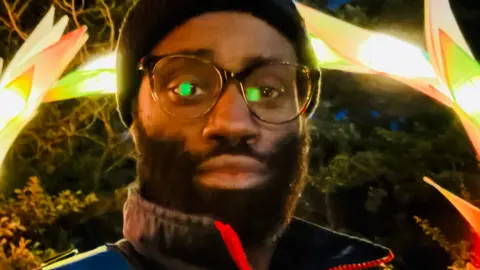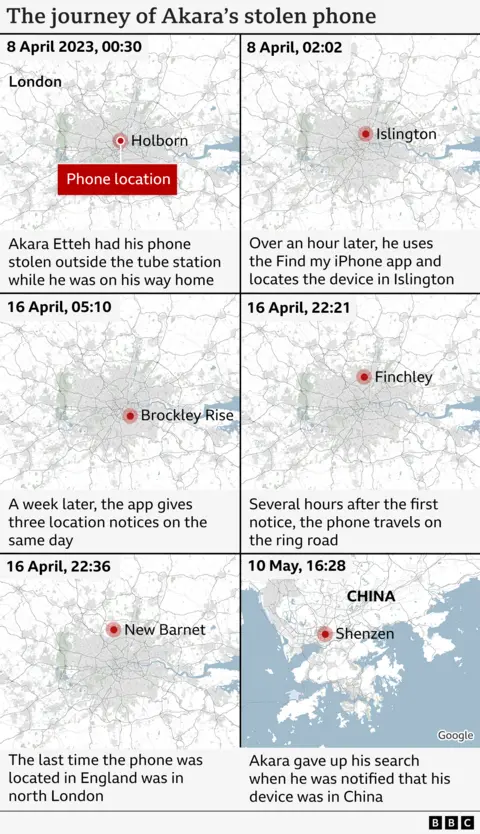Sci-Tech
An A.I. Researcher Takes On Election Deepfakes

For nearly 30 years, Oren Etzioni was among the most optimistic of artificial intelligence researchers.
But in 2019 Dr. Etzioni, a University of Washington professor and founding chief executive of the Allen Institute for A.I., became one of the first researchers to warn that a new breed of A.I. would accelerate the spread of disinformation online. And by the middle of last year, he said, he was distressed that A.I.-generated deepfakes would swing a major election. He founded a nonprofit, TrueMedia.org in January, hoping to fight that threat.
On Tuesday, the organization released free tools for identifying digital disinformation, with a plan to put them in the hands of journalists, fact checkers and anyone else trying to figure out what is real online.
The tools, available from the TrueMedia.org website to anyone approved by the nonprofit, are designed to detect fake and doctored images, audio and video. They review links to media files and quickly determine whether they should be trusted.
Dr. Etzioni sees these tools as an improvement over the patchwork defense currently being used to detect misleading or deceptive A.I. content. But in a year when billions of people worldwide are set to vote in elections, he continues to paint a bleak picture of what lies ahead.
“I’m terrified,” he said. “There is a very good chance we are going to see a tsunami of misinformation.”
In just the first few months of the year, A.I. technologies helped create fake voice calls from President Biden, fake Taylor Swift images and audio ads, and an entire fake interview that seemed to show a Ukrainian official claiming credit for a terrorist attack in Moscow. Detecting such disinformation is already difficult — and the tech industry continues to release increasingly powerful A.I. systems that will generate increasingly convincing deepfakes and make detection even harder.
Many artificial intelligence researchers warn that the threat is gathering steam. Last month, more than a thousand people — including Dr. Etzioni and several other prominent A.I. researchers — signed an open letter calling for laws that would make the developers and distributors of A.I. audio and visual services liable if their technology was easily used to create harmful deepfakes.
At an event hosted by Columbia University on Thursday, Hillary Clinton, the former secretary of state, interviewed Eric Schmidt, the former chief executive of Google, who warned that videos, even fake ones, could “drive voting behavior, human behavior, moods, everything.”
“I don’t think we’re ready,” Mr. Schmidt said. “This problem is going to get much worse over the next few years. Maybe or maybe not by November, but certainly in the next cycle.”
The tech industry is well aware of the threat. Even as companies race to advance generative A.I. systems, they are scrambling to limit the damage that these technologies can do. Anthropic, Google, Meta and OpenAI have all announced plans to limit or label election-related uses of their artificial intelligence services. In February, 20 tech companies — including Amazon, Microsoft, TikTok and X — signed a voluntary pledge to prevent deceptive A.I. content from disrupting voting.
That could be a challenge. Companies often release their technologies as “open source” software, meaning anyone is free to use and modify them without restriction. Experts say technology used to create deepfakes — the result of enormous investment by many of the world’s largest companies — will always outpace technology designed to detect disinformation.
Last week, during an interview with The New York Times, Dr. Etzioni showed how easy it is to create a deepfake. Using a service from a sister nonprofit, CivAI, which draws on A.I. tools readily available on the internet to demonstrate the dangers of these technologies, he instantly created photos of himself in prison — somewhere he has never been.
“When you see yourself being faked, it is extra scary,” he said.
Later, he generated a deepfake of himself in a hospital bed — the kind of image he thinks could swing an election if it is applied to Mr. Biden or former President Donald J. Trump just before the election.
TrueMedia’s tools are designed to detect forgeries like these. More than a dozen start-ups offer similar technology.
But Dr. Etzioni, while remarking on the effectiveness of his group’s tool, said no detector was perfect because they were driven by probabilities. Deepfake detection services have been fooled into declaring images of kissing robots and giant Neanderthals to be real photographs, raising concerns that such tools could further damage society’s trust in facts and evidence.
When Dr. Etzioni fed TrueMedia’s tools a known deepfake of Mr. Trump sitting on a stoop with a group of young Black men, they labeled it “highly suspicious” — their highest level of confidence. When he uploaded another known deepfake of Mr. Trump with blood on his fingers, they were “uncertain” whether it was real or fake.
“Even using the best tools, you can’t be sure,” he said.
The Federal Communications Commission recently outlawed A.I.-generated robocalls. Some companies, including OpenAI and Meta, are now labeling A.I.-generated images with watermarks. And researchers are exploring additional ways of separating the real from the fake.
The University of Maryland is developing a cryptographic system based on QR codes to authenticate unaltered live recordings. A study released last month asked dozens of adults to breathe, swallow and think while talking so their speech pause patterns could be compared with the rhythms of cloned audio.
But like many other experts, Dr. Etzioni warns that image watermarks are easily removed. And though he has dedicated his career to fighting deepfakes, he acknowledges that detection tools will struggle to surpass new generative A.I. technologies.
Since he created TrueMedia.org, OpenAI has unveiled two new technologies that promise to make his job even harder. One can recreate a person’s voice from a 15-second recording. Another can generate full-motion videos that look like something plucked from a Hollywood movie. OpenAI is not yet sharing these tools with the public, as it works to understand the potential dangers.
(The Times has sued OpenAI and its partner, Microsoft, on claims of copyright infringement involving artificial intelligence systems that generate text.)
Ultimately, Dr. Etzioni said, fighting the problem will require widespread cooperation among government regulators, the companies creating A.I. technologies, and the tech giants that control the web browsers and social media networks where disinformation is spread. He said, though, that the likelihood of that happening before the fall elections was slim.
“We are trying to give people the best technical assessment of what is in front of them,” he said. “They still need to decide if it is real.”
Sci-Tech
Thieves snatched his phone in London

 Akara Etteh
Akara EttehEarly on a Saturday morning in April, Akara Etteh was checking his phone as he came out of Holborn tube station, in central London.
A moment later, it was in the hand of a thief on the back of an electric bike – Akara gave chase, but they got away.
He is just one victim of an estimated 78,000 “snatch thefts” in England and Wales in the year to March, a big increase on the previous 12 months.
The prosecution rate for this offence is very low – the police say they are targeting the criminals responsible but cannot “arrest their way out of the problem”. They also say manufacturers and tech firms have a bigger role to play.
Victims of the crime have been telling the BBC of the impact it has had on them – ranging from losing irreplaceable photos to having tens of thousands of pounds stolen.
And for Akara, like many other people who have their phone taken, there was another frustration: he was able to track where his device went, but was powerless to get it back.
Phone pings around London
He put his iPhone 13 into lost mode when he got home an hour or so later – meaning the thieves couldn’t access its contents – and turned on the Find My iPhone feature using his laptop.
This allowed Akara to track his phone’s rough location and almost immediately he received a notification to say it was in Islington. Eight days later, the phone was pinging in different locations around north London again.
In a move says he “wouldn’t recommend” with hindsight, he went to two of the locations his phone had been in to “look around”.
“It was pretty risky,” he said. “I was fuelled by adrenaline and anger.”

He didn’t speak to anyone, but he felt he was being watched and went home.
“I am really angry,” he said. “The phone is expensive. We work hard to earn that money, to be able to buy the handset, and someone else says ‘screw that’.”
Then, in May, just over a month after the theft, Akara checked Find My iPhone again – his prized possession was now on the other side of the world – in Shenzhen, China.
Akara gave up.
It is not uncommon for stolen phones to end up in Shenzhen – where if devices can’t be unlocked and used again, they are disassembled for parts.
The city is home to 17.6 million people and is a big tech hub, sometimes referred to as China’s Silicon Valley.
Police could not help
In the moments after Akara’s phone was stolen, he saw police officers on the street and he told them what had happened. Officers, he said, were aware of thieves doing a “loop of the area” to steal phones, and he was encouraged to report the offence online, which he did.
A few days later, he was told by the Metropolitan Police via email the case was closed as “it is unlikely that we will be able to identify those responsible”.
Akara subsequently submitted the pictures and information he had gathered from the locations where his stolen phone had been. The police acknowledged receipt but took no further action.
The Metropolitan Police had no comment to make on Akara’s specific case, but said it was “targeting resources to hotspot areas, such as Westminster, Lambeth and Newham, with increased patrols and plain clothes officers which deter criminals and make officers more visibly available to members of the community”.
Lost photos of mum
Many other people have contacted the BBC with their experiences of having their phones taken. One, James O’Sullivan, 44, from Surrey, says he lost more than £25,000 when thieves used his stolen device’s Apple Pay service.
Meanwhile, Katie Ashworth, from Newcastle, explained her phone was snatched in a park along with her watch, and a debit card in the phone case.
“The saddest thing was that the phone contained the last photos I had of my mum on a walk before she got too unwell to really do anything – I would do anything to get those photos back,” the 36-year-old says.
Again, she says, there was a lack of action from the police.
“The police never even followed it up with me, despite my bank transactions showing exactly where the thieves went,” she said.
“The police just told me to check Facebook Marketplace and local second-hand shops like Cex.”
‘Battle against the clock’ for police
So why are the police seemingly unable to combat this offence – or recover stolen devices?
PC Mat Evans, who has led a team working on this kind of crime for over a decade within West Midlands Police, admitted that only “quite a low number” of phones that are stolen actually get recovered.
He says the problem is the speed with which criminals move.
“Phones will be offloaded to known fences within a couple of hours,” he said.
“It’s always a battle against the clock immediately following any of these crimes, but people should always report these things to the police, because if we don’t know that these crimes are taking place, we can’t investigate them.”
And sometimes just one arrest can make a difference.
“When we do catch these criminals, either in the act or after the fact, our crime rates tank,” he said.
“Quite often that individual has been responsible for a huge swathe of crime.”
But the problem is not just about policing.
In a statement, Commander Richard Smith from the National Police Chiefs’ Council, which brings together senior officers to help develop policing strategy, said it would “continue to target” the most prolific criminals.
“We know that we cannot arrest our way out of this problem,” he said.
“Manufacturers and the tech industry have an important role in reducing opportunities for criminals to benefit from the resale of stolen handsets.”
Tracking and disabling
 PC Mat Evans
PC Mat EvansStolen phones can already be tracked and have their data erased through services such as “Find My iPhone” and “Find My Device”, from Android.
But policing minister Dame Diana Johnson said this week the government wanted manufacturers to ensure that any stolen phone could be permanently disabled to prevent it being sold second-hand.
Police chiefs will also be tasked with gathering more intelligence on who is stealing phones and where stolen devices end up.
A growing demand for second-hand phones, both in the UK and abroad, is believed to be a major driver behind the recent rise in thefts, the government said.
The Home Office is to host a summit at which tech companies and phone manufacturers will be asked to consider innovations that could help stop phones being traded illegally.
PC Evans said there was “no magic bullet”, but he said there was one thing manufacturers could do which would be “enormously helpful” to the police – more accurate tracking.
“At this moment in time, phone tracking is okay,” he said.
“But it’s not that scene in Total Recall yet, where you’re able to run around with a tracking device in your hand, sprinting down the road after a little bleeping dot.
“I appreciate it’s a big ask from the phone companies to make that a thing, but that would be enormously helpful from a policing perspective.”
Apple and Android did not provide the BBC with a statement, but Samsung said it was “working closely with key stakeholders and authorities on the issue of mobile phone theft and related crimes”.
Additional reporting by Tom Singleton
Sci-Tech
Google abusing ad tech dominance, UK competition watchdog finds

Google uses anti-competitive practices to dominate the market for online advertising technology, a UK watchdog has provisionally found.
The potentially unlawful behaviour could be harming thousands of UK publishers and advertisers, an investigation by the Competition and Markets Authority (CMA) has warned.
It accuses Google of preventing rivals from “competing on a level playing field” with its own tech for the billions of pounds spent by UK businesses on online advertising.
Google said the watchdog’s findings were “flawed” and said it would respond.
According to the CMA, the vast majority of businesses use Google’s services when placing digital ads on websites.
Google maintains it has a strong business incentive to help UK firms thrive, and argues that advertisers choose to use Google because its products work well and help their businesses grow.
The watchdog will now consider representations from Google before deciding what action to take.
If Google is found to have broken competition law, the watchdog could impose a financial penalty of up to 10% of annual worldwide group turnover and issue legally binding directions to the firm.
“We’ve provisionally found that Google is using its market power to hinder competition when it comes to the ads people see on websites,” Juliette Enser, the CMA’s interim executive director of enforcement, said in a statement.
She pointed out that many businesses were able to keep their digital content free by using revenue from digital adverts, which reach millions of people across the UK.
“That’s why it’s so important that publishers and advertisers – who enable this free content – can benefit from effective competition and get a fair deal when buying or selling digital advertising space,” she wrote.
But Google’s vice president of global ads, Dan Taylor argued the search giant’s advertising technology helped websites and apps fund their content, and effectively reach new customers.
“The core of this case rests on flawed interpretations of the ad tech sector. We disagree with the CMA’s view and we will respond accordingly,” he wrote.
Google’s activities in ad tech are also subject to continuing probes by the US Department of Justice and the European Commission.
Competition economist Dr Cristina Caffarra, told the BBC that while the CMA’s statement of objections certainly presented “another headache” for Google, the regulator was merely “joining the club” of those who have already taken action.
“The UK is by no means some sort of pathfinder here,” she said.
The Department of Justice, state of Texas – which along with nine other states sued Google over alleged abuse of its ad tech dominance in 2020 – and the EU are all far ahead, Dr Caffarra added.
In 2023, EU competition regulators told Google it might need to sell part of its ad-tech business to address their concerns.
But the tech-giant has argued this would be a “disproportionate” step.
Separately, Google is seeking to appeal a UK court decision in June to allow a £13.6bn collective-action lawsuit against it to proceed.
The case alleges the search giant behaved in an anti-competitive way which caused online publishers in the UK to lose money.
Google has vowed to oppose the claim “vigorously and on the facts”.
Additional reporting by Liv McMahon
Sci-Tech
Could PS5’s old-school adventure be a lesson for Sony?

 Sony
SonyIt’s just a few hours before reviews of one of the year’s biggest PlayStation 5 releases arrive, and its director is talking about food.
Buffets, to be precise.
You might get a lot for your money, but how do you feel afterwards?
“Bloated, you’ve eaten too much and you just want to go and sleep,” says Nicolas Doucet, head of Sony-owned studio Team Asobi.
Gamers are fond of food metaphors. Developers don’t just make games, they “cook”. If you’re spoilt for choice with high quality new releases, you’re “eatin’ good”.
But Nicolas is referring to the sense that blockbuster publishers have tended to have an all-you-can-eat approach when it comes to making games.
For a while now, the industry’s biggest players have been focused on producing open-world titles offering dozens of hours of gameplay, or on attempts to muscle into the lucrative online market.
Both genres have produced some huge hits, but Nicolas wonders if there is an appetite for something more like “that two-course meal that is going to be just the right amount”.
Astro Bot could be just the recipe Sony has been looking for.
Earlier this week the Japanese company announced it was pulling Concord – one of its other recent big games – from sale after a tepid response from critics and players.
The online shooter is the latest high-profile bid to corner the so-called “live service” market dominated by the likes of Fortnite and Apex Legends that’s failed to attract a large audience.
But in a quiet year for first-party PlayStation releases, Astro Bot has received some of the highest review scores of 2024 and some critics say it’s one of Sony’s best in ages.
At its heart it’s an old-school 3D platformer that’s crammed full of references to PlayStation’s 30-year history.
The game’s main objective is to rescue 300 Astro Bots hidden around various themed levels, with about half of those decked out in cosplay to resemble characters from the console’s past.
But as much as it’s a nostalgic reminder of Sony’s great successes, could it also be a lesson for the company’s future?
 Team Asobi
Team AsobiIf you’re one of the world’s 60 million PlayStation 5 owners, you’re almost certainly familiar with Astro Bot.
The cute mascot character appeared in 2020’s Astro’s Playroom, a short, three-hour adventure pre-installed on every machine.
It was designed to act as a tech demo for the hardware and its advanced controller, but people loved it.
“And it did highlight perhaps the fact that people are craving for these kind of games,” says Nicolas.
Releasing a 3D platformer in 2024 is, on paper, a daunting prospect. Nicolas admits the genre – a staple of the PlayStation 2 era – isn’t very common these days.
And, he says: “The ones that do exist are very, very high quality from people who’ve been making them for years and years.”
It’s also a genre Sony has moved away from recently, and its biggest releases have been more adult, cinematic titles such as God of War and The Last of Us.
Nicolas thinks this is a sign of audiences, and the developers making games for them, maturing.
But he admits that left a gap which Team Asobi – a relatively young studio – was eager to fill.
“I think there needs to be more games that are there just to relax, have a little bit of fun, that are not dramatic, that are not necessarily heavily story driven, where you can just mess around with a game and it’s fun,” says Nicolas.
“But, of course, it needs to be executed well.”
Astro Bot’s been widely praised for its polish, attention to detail and the way it plays, drawing comparisons with Mario – for many, the undisputed king of 3D platformers.
Nicolas considers descriptions of Astro Bot as “old school” a compliment and that going “back to basics” helped with the game’s development.
As concerns grow over spiralling budgets, Astro Bot was made in three-and-a-half years by a team of about 65 people – a relatively short time and small staff by modern standards.
Nicolas says the game’s bite-sized nature – it’s divided across 50 short, playable stages – helped to simplify development and made it easier to “swap things around”.
“Whereas when you’re tied to something that is one storyline, one timeline that is set, it’s very difficult,” he says.
“You have less flexibility.”
 Team Asobi
Team AsobiSony will now be hoping that Astro Bot’s glowing reception translates into big sales, but comparisons with Concord’s swift fall have already begun.
It’s also shone a light on characters Sony could revive, and prompted some people to question whether the company will shift its recent focus on the live-service market.
Under previous PlayStation boss Jim Ryan, the company announced plans to launch 12 online-focused games. It’s since scaled that back to six.
As for single-player titles, some of Sony’s biggest in-house studios haven’t yet revealed PS5 projects.
Hermen Hulst, one of two new CEOs in charge of Sony’s gaming division, told the BBC in a statement it was “very important we offer a wide variety of titles to our community” and that “Astro Bot fills an important part of our portfolio”.
He praised Team Asobi for creating “something special that is light-hearted and delightful” with “incredibly fun gameplay”.
Astro Bot is also “a great opportunity for families to game together”, he said.
Nicolas opts not to comment on the Concord situation or bigger, strategic moves, but he does agree with his boss that Astro Bot has given PS5 a game that can “bridge generations”.
Many reviewers have remarked on how cameos from the past have reminded them of growing up with Crash Bandicoot, Jak and Daxter or the cast of Ape Escape – characters that set them on the path to becoming gamers.
Nicolas says he often gets messages from parents who’ve played Astro’s Playroom with their children talking about their experiences, and he hopes that the new game will create more shared moments.
“I’m really happy that, besides the game itself, there’s a greater good, if you like, that we’re able to tell stories like that,” he says.
“And I really hope that we can brighten some people’s homes thanks to that experience.”
Additional reporting by Tom Gerken.

-

 African History5 years ago
African History5 years agoA Closer Look: Afro-Mexicans 🇲🇽
-

 African History8 months ago
African History8 months agoBlack History Facts I had to Learn on My Own pt.6 📜
-

 African History5 years ago
African History5 years agoA Closer Look: Afro-Mexicans 🇲🇽
-

 African History1 year ago
African History1 year agoMajor African Tribes taken away during the Atlantic Slave Trade🌍 #slavetrade #africanamericanhistory
-

 African History1 year ago
African History1 year agoCameroon 🇨🇲 World Cup History (1962-2022) #football #realmadrid #shorts
-

 African History1 year ago
African History1 year agoWhat did Columbus Find in 1493? 🤯🔥🔥 #history #civilization #mesoamerica #africa #kemet
-

 African History7 months ago
African History7 months agoBlack History Inventors: Mary Kenner 🩸
-

 African History1 year ago
African History1 year agoOrigin Of ‘Cameroon’ 🇨🇲😳#africa
























